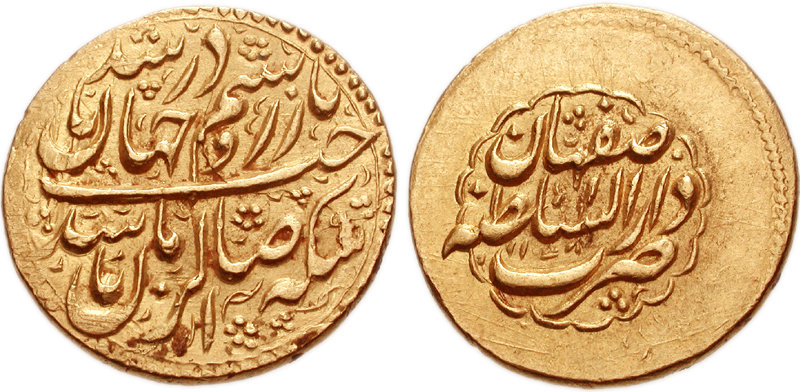|
Ottoman–Persian War (1775–1776)
The Ottoman–Persian War of 1775–1776 was fought between the Ottoman Empire and the Zand dynasty of Persia. The Persians, ruled by Karim Khan and led by his brother Sadeq Khan Zand, invaded southern Iraq and after besieging Basra for a year, took the city from the Ottomans in 1776. The Ottomans, unable to send troops, were dependent on the Mamluk governors to defend that region. In an attempt to raise troops and provisions for this war, Ottoman Sultan Abdülhamid I, made Suleiman al-Jalili ''mubayaaci'' (official of provisions), ordering him to send provisions to Baghdad, which he ignored, instead he restricted merchants from selling their goods. As a result, the Persians held Basra until 1779 when the Ottomans, under Sulayman Agha, retook the city, following Karim Khan's death.Dionisius A. Agius, ''In the Wake of the Dhow: The Arabian Gulf and Oman'', (Ithaca Press, 2010), 15. See also * Safavid occupation of Basra *Ottoman–Persian Wars The Ottoman–Persian Wars o ... [...More Info...] [...Related Items...] OR: [Wikipedia] [Google] [Baidu] |
Karim Khan Zand
Mohammad Karim Khan Zand ( fa, محمدکریم خان زند, Mohammad Karīm Khân-e Zand; ) was the founder of the Zand Dynasty, ruling from 1751 to 1779. He ruled all of Iran (Persia) except for Khorasan. He also ruled over some of the Caucasian lands and occupied Basra for some years. While Karim was ruler, Iran recovered from the devastation of 40 years of war, providing the war-ravaged country with a renewed sense of tranquillity, security, peace, and prosperity. The years from 1765 to Karim Khan's death in 1779, marked the zenith of Zand rule. During his reign, relations with Britain were restored, and he allowed the East India Company to have a trading post in southern Iran. He made Shiraz his capital and ordered the construction of several architectural projects there. As noted by ''The Oxford Dictionary of Islam'', "Karim Khan Zand holds an enduring reputation as the most humane Iranian ruler of the Islamic era". When following the Islamic Revolution of 1979, the nam ... [...More Info...] [...Related Items...] OR: [Wikipedia] [Google] [Baidu] |
Ottoman Sultan
The sultans of the Ottoman Empire ( tr, Osmanlı padişahları), who were all members of the Ottoman dynasty (House of Osman), ruled over the transcontinental empire from its perceived inception in 1299 to its dissolution in 1922. At its height, the Ottoman Empire spanned an area from Hungary in the north to rebel in the south and from Algeria in the west to Iraq in the east. Administered at first from the city of Söğüt since before 1280 and then from the city of Bursa since 1323 or 1324, the empire's capital was moved to Adrianople (now known as Edirne in English) in 1363 following its conquest by Murad I and then to Constantinople (present-day Istanbul) in 1453 following its conquest by Mehmed II. The Ottoman Empire's early years have been the subject of varying narratives, due to the difficulty of discerning fact from legend. The empire came into existence at the end of the 13th century, and its first ruler (and the namesake of the Empire) was Osman I. According to l ... [...More Info...] [...Related Items...] OR: [Wikipedia] [Google] [Baidu] |
History Of Basra
Basra ( ar, ٱلْبَصْرَة, al-Baṣrah) is an Iraqi city located on the Shatt al-Arab. It had an estimated population of 1.4 million in 2018. Basra is also Iraq's main port, although it does not have deep water access, which is handled at the port of Umm Qasr. However, there is ongoing constuction of Grand Faw Port on the coast of Basra, which is considered a national project for Iraq and will become one of the largest ports in the world and the largest in the Middle East, in addition, the port will strengthen Iraq’s geopolitical position in the region and the world. Furthermore, Iraq is planning to establish large naval base in the Faw peninsula. Historically, the city is one of the ports from which the fictional Sinbad the Sailor journeyed. The city was built in 636 and has played an important role in Islamic Golden Age. Basra is consistently one of the hottest cities in Iraq, with summer temperatures regularly exceeding . In April 2017, the Iraqi Parliament ... [...More Info...] [...Related Items...] OR: [Wikipedia] [Google] [Baidu] |
1776 In The Ottoman Empire
Events January–February * January 1 – American Revolutionary War – Burning of Norfolk: The town of Norfolk, Virginia is destroyed, by the combined actions of the British Royal Navy and occupying Patriot forces. * January 10 – American Revolution – Thomas Paine publishes his pamphlet ''Common Sense'', arguing for independence from British rule in the Thirteen Colonies. * January 20 – American Revolution – South Carolina Loyalists led by Robert Cunningham sign a petition from prison, agreeing to all demands for peace by the formed state government of South Carolina. * January 24 – American Revolution – Henry Knox arrives at Cambridge, Massachusetts, with the artillery that he has transported from Fort Ticonderoga. * February 17 – Edward Gibbon publishes the first volume of ''The History of the Decline and Fall of the Roman Empire''. * February 27 – American Revolution – Battle of Moore's Creek Bridge: Scott ... [...More Info...] [...Related Items...] OR: [Wikipedia] [Google] [Baidu] |


%2C_by_John_Trumbull.jpg)